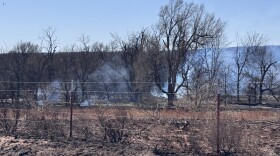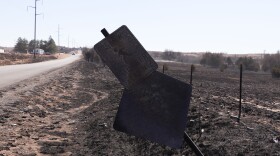The latest map by the U.S. Drought Monitor shows two-fifths percent of Oklahoma is in moderate to severe drought, but the state's agriculture industry isn't concerned just yet.
Forecasters expect higher-than-average temperatures through November. However, a familiar pattern could spell trouble if the warm, dry conditions persist into the spring. That’s how the five-year drought started in 2011, The Journal Record’s Brian Brus reports:
The conditions are a result of rainfall deficits that accumulated during the summer, drying not only surface soils but also lowering groundwater levels, meteorologists said. The Oklahoma Climatological Survey reports that almost all of the state’s usable surface water comes from precipitation and that even a few months of dry conditions can elevate wildfire risks and drive municipalities to tap their reservoirs. That occurred just five years ago in Oklahoma when conditions were as bad as they had been in the 1930s, driving ranchers to sell off their cattle herds rather than let them die in the fields for lack of forage or water. Farmers were hit just as hard, although a few wet periods scattered around the state helped some make harvest.
Farmers and ranchers have plenty of hay and forage stored for this season. Wheat experts say the decade of uncertainty has been a good test for growers.
The final yield and quality of hard red winter wheat, the most common variety grown in Oklahoma, typically doesn’t rely on early conditions. In fact, lower-rated winter wheat crops seem to lead to bigger harvests, as 2011 and 2012 proved. Agriculture finance professor Damona Doye said persistent drought has helped keep land prices depressed in Oklahoma. Because land values are influenced so strongly by beef prices and income, and data shows those numbers have been down in recent years, landowners haven’t been able to benefit from the same bid-ups found elsewhere in agriculture.
KGOU relies on voluntary contributions from readers and listeners to further its mission of public service to Oklahoma and beyond. To contribute to our efforts, make your donation online, or contact our Membership department.







